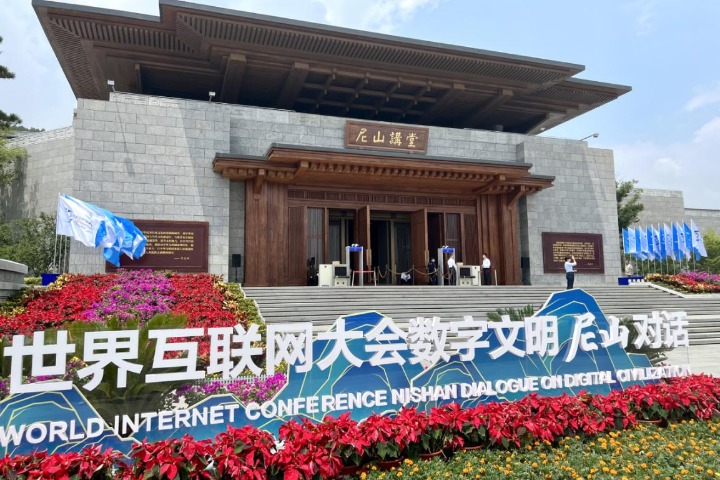Turkey a bridge for East-West AI governance

In a rapidly evolving digital landscape, the recent World Internet Conference Nishan Dialogue on Digital Civilization provided a thought-provoking platform for global leaders, industry experts, and scholars to gather in the birthplace of Confucius and engage in fruitful discussions on the future of AI.
As the only invited participant from Turkey to this prestigious event, I had the opportunity to witness China’s approach to AI regulation and its implications for global governance. Here are some noteworthy observations I would like to share:
Diverse approaches to AI regulation
The global landscape of AI regulation can be categorized into three main approaches. In the United States, the regulatory process faces obstacles due to congressional deadlock and the influence of powerful corporations. On the other hand, China has taken a proactive role in setting regulations through the state and implementing them through companies such as Alibaba, Tencent, and Baidu. The European Union plays a significant role in shaping global standards through detailed regulations, as seen in the recent AI Act. China’s approach emphasizes the importance of national sovereignty in AI regulation and resists the imposition of Western standards.
Contributions to global AI governance
China’s active participation in global AI governance discussions, as evident in the dialogue, is expected to influence not only standard-setting bodies such as the European Union but also the choices of countries beyond the United States, EU, and China. Beijing’s contributions are poised to shape the global discourse on AI regulation and foster international cooperation in this crucial field.
China’s resilience in AI development
China has been at the forefront of AI development, leveraging its vast data resources and skilled workforce. However, recent challenges, such as embargoes on AI chips and the lag in large-scale language models like ChatGPT, have raised concerns about maintaining this competitive edge. The conference highlighted the need for continuous innovation to address these challenges and preserve China’s leadership in AI development.
Investment opportunities and collaboration
The ongoing divergence between the United States and China presents an opportunity for attracting Chinese funds to regions such as the Middle East and Eastern Europe. Chinese investors seeking to capture the nuances of local and cultural data are anticipated to invest in AI initiatives worldwide. However, it is noteworthy that the United States recently announced potential restrictions on Chinese investors in domestic venture capital funds.
China’s dedication to leveraging AI for social good was another prominent theme highlighted during the conference. Presentations by representatives from Microsoft, Google, and other Western companies showcased the collaborative potential between Chinese and Western organizations in addressing societal challenges through AI applications.
Turkey offers new channels for China
As we navigate the technological divide between the West and China, Turkey’s digital policies under the AK Party government offer a distinct perspective that positions the country between these two global powers. While Turkey shares some similarities with China in its emphasis on data localization and security, it also exhibits unique characteristics that differentiate it from both the Chinese and European approaches.
Turkey’s approach strikes a balance between fostering innovation, protecting individual rights, and promoting secure and responsible digital practices. The government’s focus on localization and security, as well as its efforts to encourage entrepreneurship and innovation in the tech sector, reflect Turkey’s commitment to shaping its digital landscape in a way that aligns with its own cultural and societal values. This positioning presents an opportunity for Turkey to contribute to the global discourse on digital governance, offering insights that bridge the gap between East and West.
Along the same lines, it becomes crucial to foster collaborations that attract Chinese investments to our region. By actively engaging Chinese investors and facilitating their entry into venture capital funds in Turkey, we can seize new investment opportunities and foster technological collaboration. By embracing China’s commitment to multi-civilizational regulation of AI, we can harness the potential of local and cultural data, propel technological advancements, and forge a path toward a future of shared prosperity.
The dialogue has provided valuable insights into China’s AI regulation approach. It is essential for us to embrace this perspective, promote dialogue, and cultivate partnerships that bridge the gap between cultures and nations. Together, we can shape a future where AI is guided by shared values and serves as a catalyst for human progress.
Ussal Sahbaz is a managing partner at Ussal Consultancy, a boutique government affairs firm focused on technology, and a board member at Turkish Informatics Foundation. Former CEO of the Centre for Economics and Foreign Policy Research Centre, an Istanbul-based think-tank.
The views don’t necessarily reflect those of China Daily.
If you have a specific expertise, or would like to share your thought about our stories, then send us your writings at [email protected], and [email protected].




